Easing Yemen’s Food Crisis: Preserving Farmlands in Al-Barakani Valley, Taiz
November 19, 2023
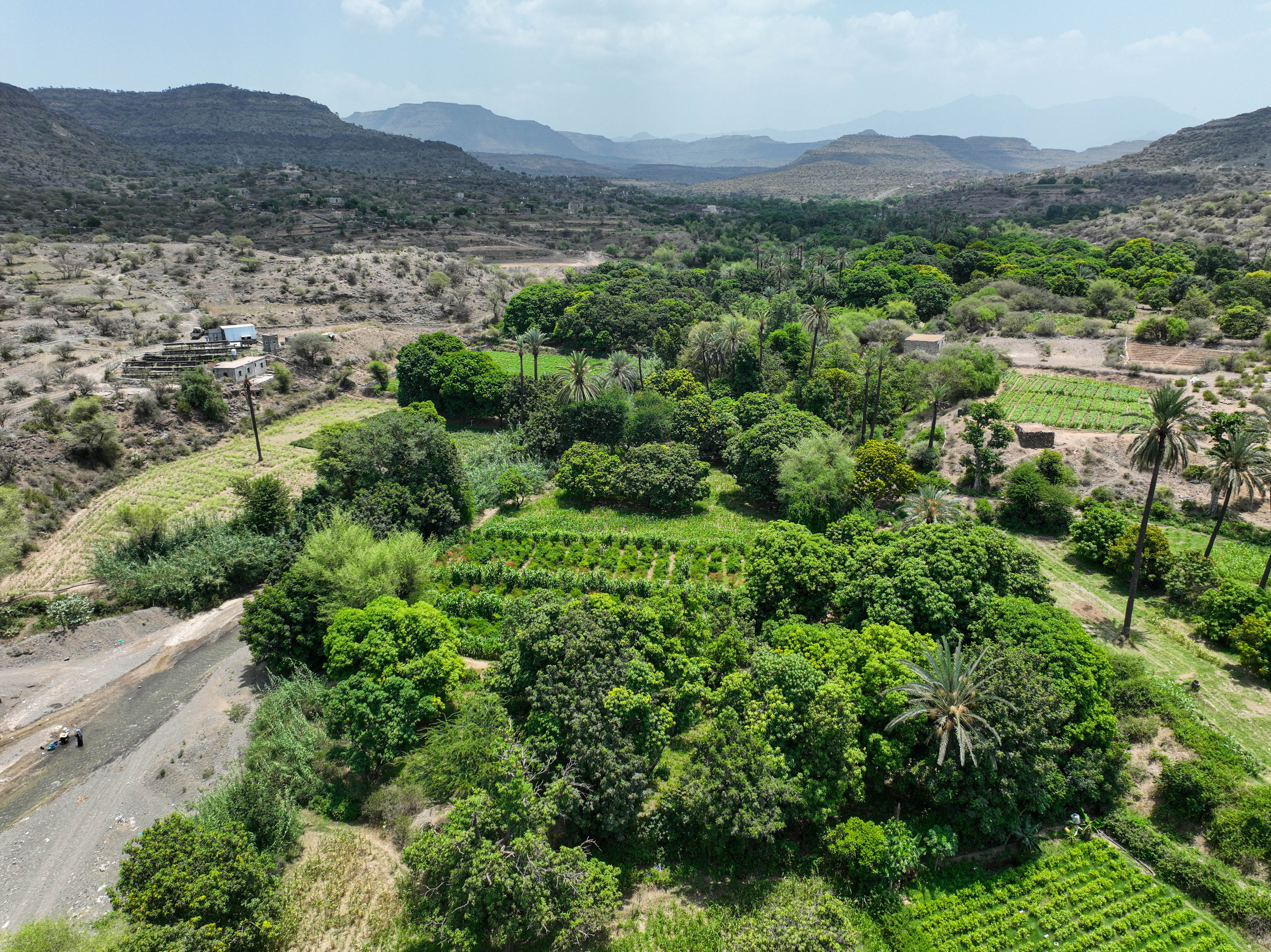
Previously unworkable agricultural lands are lush and green after support from the Food Security Response and Resilience Project.
In Yemen, supporting farmers to grow and sell their own food makes for healthy and self-sufficient communities. Local production and consumption are vital to growing a green economy in a country hard hit by conflict.
More than 24 million people –83% of the population – are struggling with food insecurity in Yemen. Additionally, more than half (51%) of young children require treatment for acute malnutrition.
One of the most pressing needs is greater domestic food production, and the changing climate is increasingly playing a role in exacerbating food scarcity. From land erosion to desertification, flooding and delayed agricultural seasons, the result is a decline in the cultivation of vital crops that hold nutritional value for the Yemeni population.
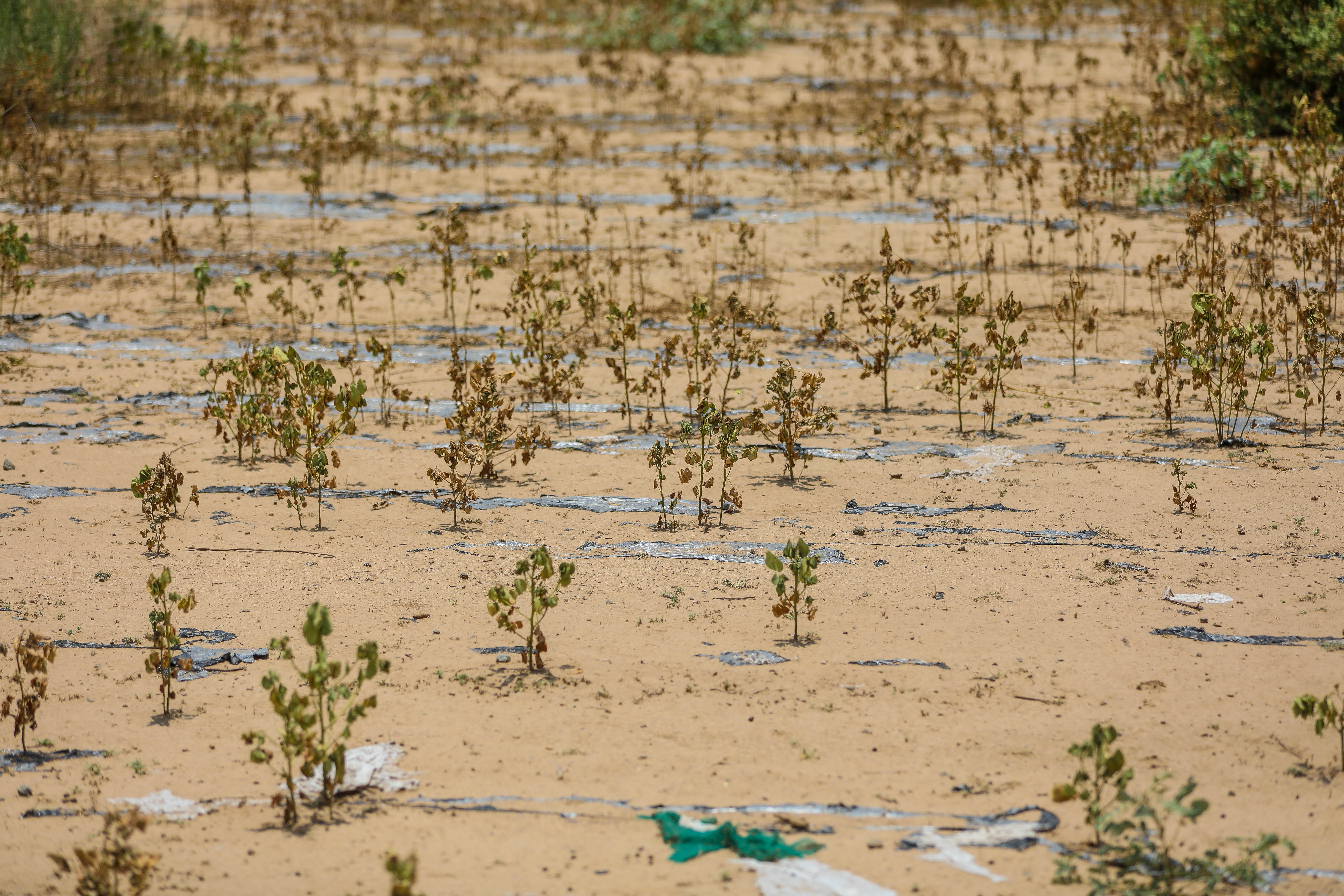
In Taiz, agricultural lands are increasingly affected by the changing climate, leading to food scarcity.
Overcoming the food crisis
To alleviate the consequences of the food crisis in Yemen and mitigate the adverse effects of climate change on the agricultural sector, the United Nations Development Programme (UNDP), with funding from the World Bank, has collaborated with the Public Works Project (PWP) to protect agricultural lands in Wadi Al-Barakani, Al-Ma’afer, Taiz. The plan is part of the Yemen Food Security Response and Resilience Project (FSRRP).
Farmers are being supported in Al-Zaqoum area, a convergence point of flooding from two nearby areas. Having experienced significant losses before, local farmers have long been hesitant to engage in any agricultural activities due to the looming threat of flooding that could wash away their crops and lands.
Al-Hussein Abdulwali, PWP representative, highlights the objectives of carrying out this intervention. “This project aims at restoring the two hectares of agricultural land that had been lost to farmers in previous years. Erosion had rendered some of farmers unable to grow anything since,” he explains.
Talking about how the project addresses the most “pressing needs” of the local community, he says the goals are to “maintain food security for agricultural households that rely solely on their harvests for sustenance and to help them generate an income to meet their daily needs.”
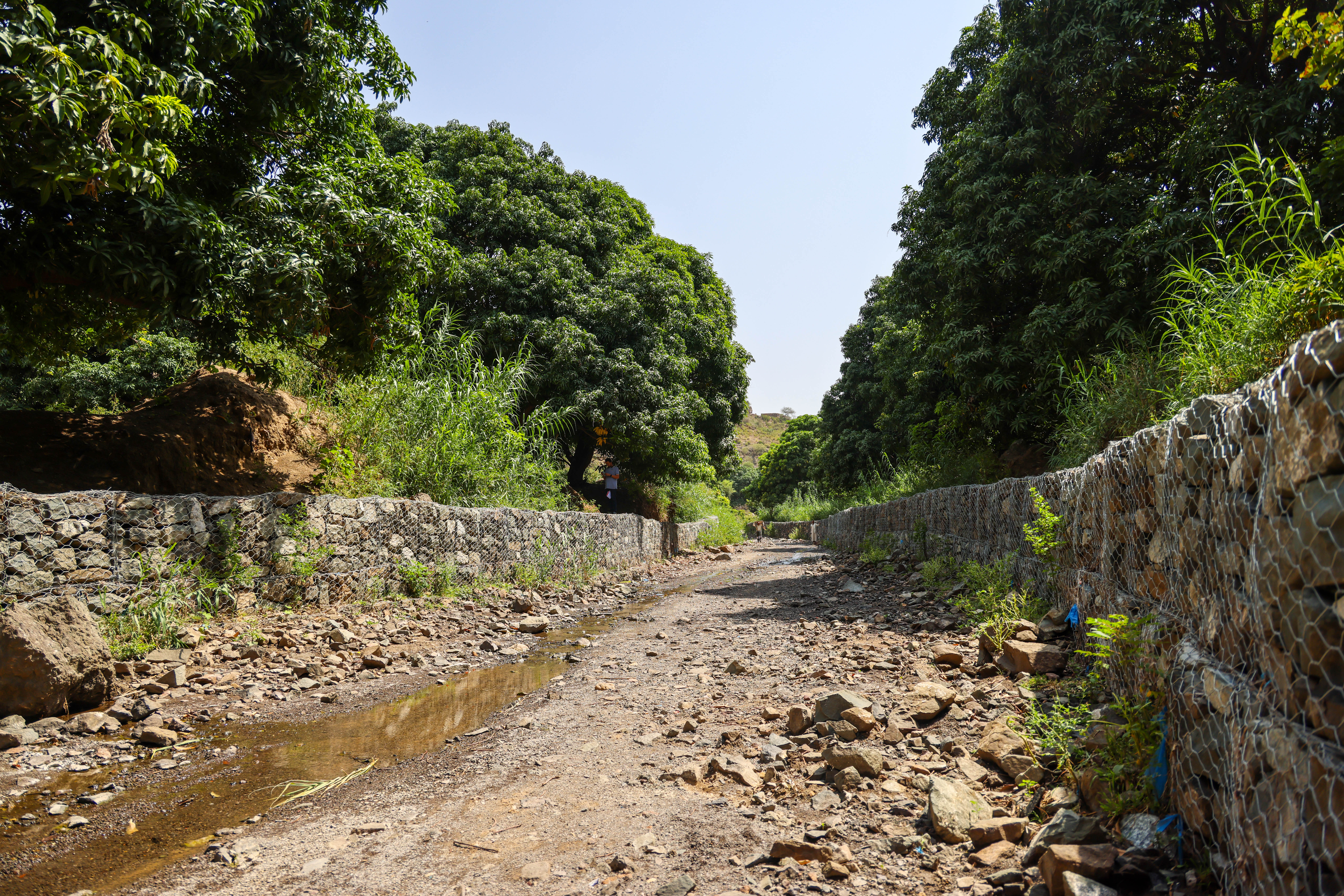
Gabions were constructed in Wadi Al-Barakani, Al-Ma’afer, Taiz Governorate, under the Food Security Response and Resilience Project to protect farmlands from flash floods.
Protecting lands and livelihoods
There are more than 20 hectares of agricultural lands in Al-Zaqoum. Thanks to the FSRRP, more than 16 hectares of threatened agricultural lands have been protected and an additional two hectares, where soil had been washed away in floods, have been restored.
The project involved the construction of gabions spanning 800 meters to protect farms from torrential floods. These gabions, made up of carefully stacked stones wrapped in wires, ensure that water flows along agricultural lands – watering crops without damaging soil or plants.
The project has directly benefitted 60 farmers, 15 of whom are women, and has resulted in a positive impact for 600 residents across the valley.
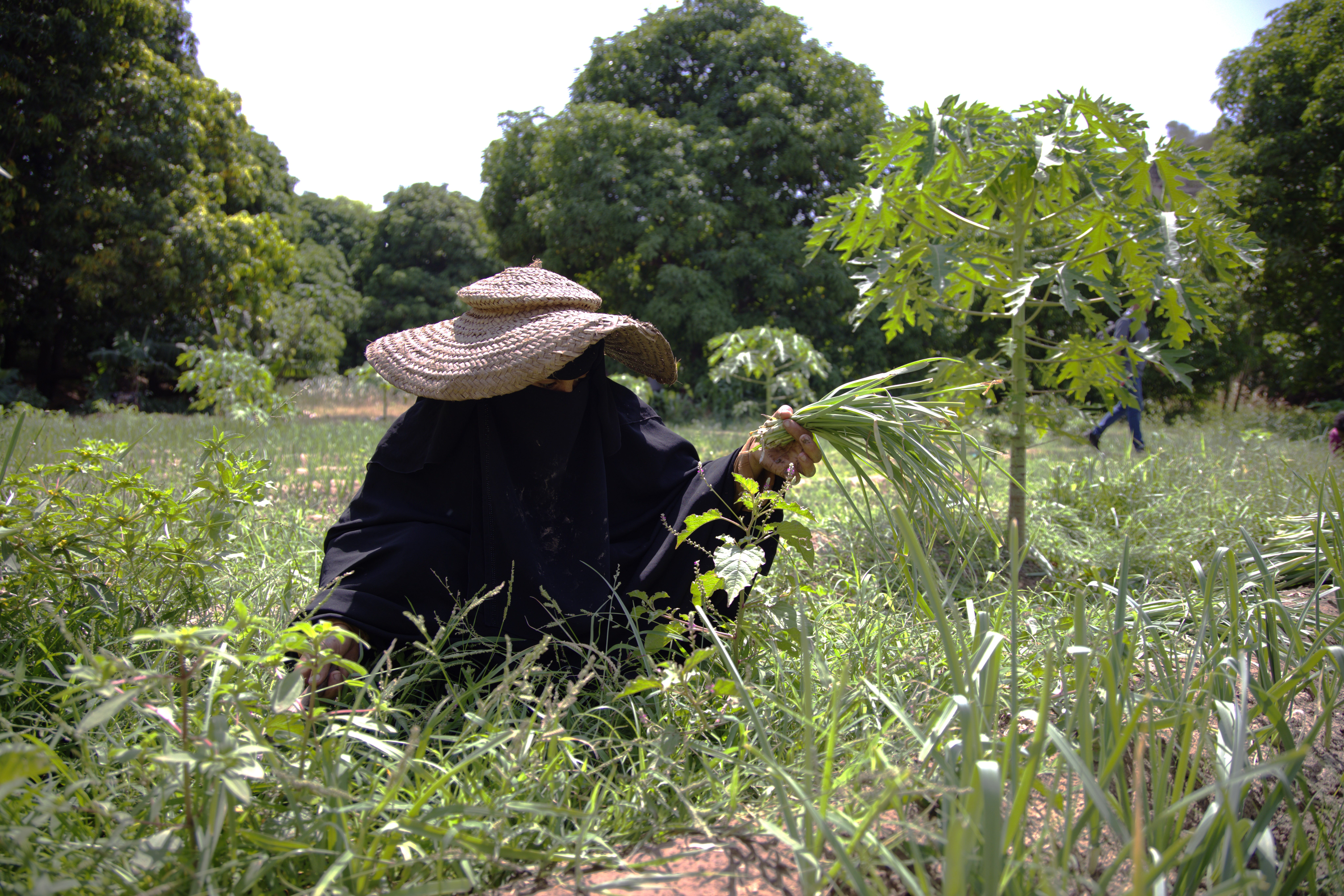
FSRRP protection walls intervention in Wadi Al-Barakani benefited 15 women farmers, in addition to 45 other farmers.
Ibrahim Abdullah Hassan, 33, is among the farmers who have benefitted. As a vegetable farmer, Hassan incurred significant losses in 2022 when his leek crop was destroyed in floods. Now, he can cultivate his land without the fear of potential harvest failure. “I can now safely grow my leeks and sell my produce at the nearby market," he says. What Hassan grows – and sells – not only helps him meet basic needs for himself, his wife and four children, but also serves his community by delivering locally grown produce and contributing to building food security in the region.
The protection walls have made a huge difference to Hassan and other farmers in the area. Previously, they would resort to makeshift solutions such as constructing protective walls from soil and tree branches, only to see them crumble or wash away, leaving farms exposed to destructive flooding.
A variety of crops are cultivated in Al-Barakani, though it is best known in Taiz – and across Yemen – for its mangoes.
Many farmers have started growing other crops to improve their income and meet their daily sustenance needs more effectively than mangoes, including various grains and vegetables such as leeks, radish, okra, tomatoes and peppers, as well as bananas and coffee.
Amin Al-Barakani, 52, owns a large mango farm and relies on it for his income. Today, he is happier than ever, as this project has helped protect his trees and increase farm production.
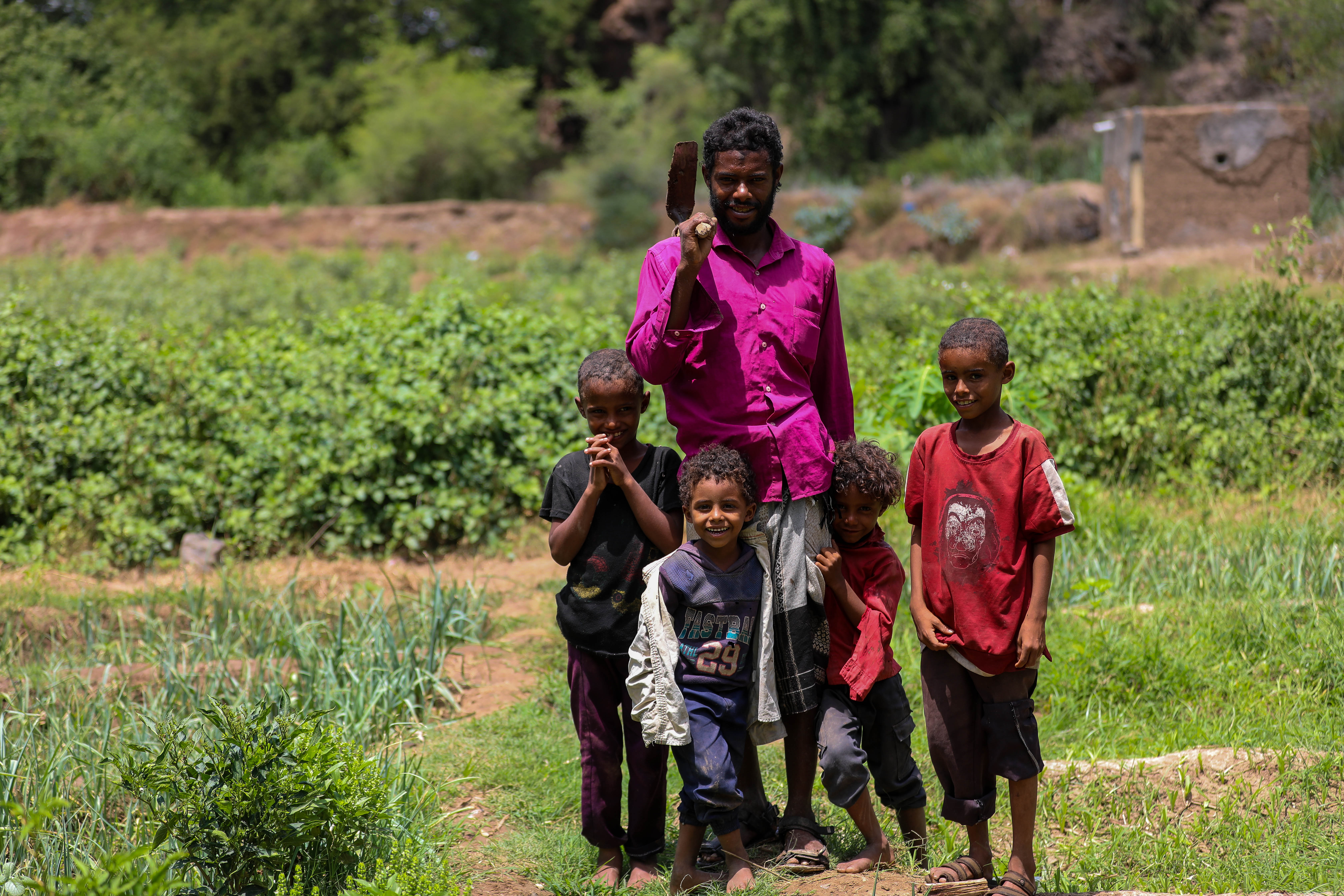
Ibrahim Hassan, 33 years old, on his farm with his four children.
Community contracting making a difference
Support was provided in Wadi Al-Barakani following a comprehensive assessment of the community's most pressing needs, particularly those of farmers, given the key role they play in food security.
The local community committee, cognisant of the importance of preserving agricultural lands, chose to implement the project to protect these lands from erosion and destructive flash floods. The project also provided temporary employment to 192 local community members.
Through the FSRRP, local community members are paid to work as they learn new skills, enabling them to grow more food in their communities over the long term.

52-year-old farmer, Amin Al-Barakani, on his protected mango farm in Wadi Al-Barakani.
***
Funded by the World Bank’s International Development Association (IDA), the Yemen Food Security Response and Resilience Project (FSRRP) is implemented by the United Nations Development Programme (UNDP), the Food and Agriculture Organization of the United Nations (FAO), and the World Food Programme. UNDP’s component of FSRRP improves agricultural production infrastructure and builds climate resilience and is implemented in partnership with the Social Fund for Development (SFD), and the Public Works Project (PWP).

 Locations
Locations


